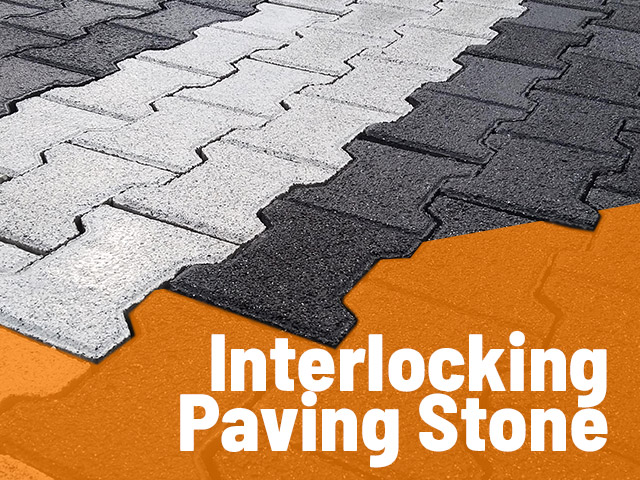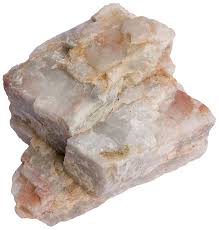Interlocking Paving Block and Concrete Block Production in Nigeria; The Feasibility Report.

Hollow concrete blocks are lightweight concrete masonry units made of aerated concrete. They serve as long-lasting, practical, and economical material in the construction industry.
Hollow concrete blocks possess unique properties such as high strength, exceptional fire rating, superior performance, and durability; therefore, they are used as substitutes for several conventional building materials such as concrete bricks, fly ash clay bricks, common burnt clay bricks, and sand-lime bricks. These blocks possess high acoustics and sound insulation and consume less quantity of cement.
They lower the need for labor and time required to complete a construction project. Hollow concrete blocks preserve their characteristics, structural values, and efficiency throughout the lifespan of building structures.
Increase in demand for lightweight solutions in modern architecture is expected to propel the global hollow concrete block market during the forecast period.
Rise in popularity of hollow concrete blocks can be primarily ascribed to their performance characteristics. These blocks retain the aesthetic appearance of building structures, since they can be manufactured in uniform sizes and shapes.
Hollow concrete blocks feature ideal bonding between mortar and the surface. Hollow concrete blocks provide effective thermal insulation due to the presence of air spaces.
A pavement, in construction, is an outdoor floor or superficial surface covering. Various types of paving materials are available in the market.
Some of them include asphalt; concrete; stones such as flagstone, cobblestone, and setts; artificial stone; bricks; and tiles.
In landscape architecture, pavements are a part of the hardscape and they are used on sidewalks, road surfaces, patios, courtyards, etc.
Block paving is one of the most long lasting and popular surfacing options, which is made from various materials such as clay and concrete. Blocks are sized to a particular shape which is normally square and rectangular and can be laid in simple lines or twisted patterns depending on preference of user.
Normally found in square or rectangular shapes, block paving is a popular choice as it is quick to install and is highly durable. Block paving requires little to no maintenance, which drives the adoption of the surfacing option.
Moreover, block paving can be used to achieve a very specific aesthetic which enhances the look of nearly any property making it a popular alternative to concrete or asphalt resurfacing.
Often found in residential areas, block paving is an aesthetically please surfacing option. Block paving can also often be found on sidewalks and walkways which further drives the market.
The expansion of the urban areas in many emerging economies has resulted in an expansion of the residential sector and infrastructure. As a result, the demand for block paving has grown significantly.
Residential sector is the largest application of such paving as it provides a perfect environment and comfort to the user.
Nigeria has a huge infrastructure deficit with total infrastructure stock in the country amounting to thirty percent (30%) of gross domestic product (GDP), falling short of the international benchmark of seventy percent (70%) of gross domestic product (GDP), set by the World Bank.
With Nigeria’s population growing at a rate of over two pint five percent (2.5%) per annum, and an expected population of four hundred million (400,000,000) people by 2050, the current state of infrastructure in the country is likely to be overwhelmed in the very near future.
In terms of housing, Nigeria currently has a housing deficit of seventeen million (17,000,000) houses and it has been estimated that the county needs to build a minimum of seven hundred thousand (700,000) houses per year in order to close the gap. However, Nigeria currently builds just two thousand (2,000) houses per year.
In 2019, the Ministry of Works and Housing set aside a total sum of 19.8 billion Naira or $55 million for the construction of two thousand, three hundred and eighty-three (2,383) units of housing under the National Housing Program, across the thirty-six (36) states of Nigeria.
Private investors are also active in the construction sector through the development of projects aimed at residential customers and corporate establishments. Commercial estates are being built by private investors to meet the housing demand of high earning citizens in choice locations across Nigeria.
Currently, residential housing unit developers in Lagos develop and sell properties in highbrow areas of Lagos for as much as $ 1 million.
The increasing need to build new residential houses, factories and offices to accommodate Nigeria’s large population has created a large, sustainable and growing market for paving stone and concrete blocks.
This report seeks to confirm the financial viability or otherwise of establishing an concrete block and interlocking paving block production plant in Nigeria capable of producing various bricks/blocks including color-face bricks (layered material feeding), through-body tiles lock linkage blocks, road curb bricks, hydraulic blocks, hollow blocks, perforated bricks, staperforated bricks, and standard bricks.
The capacity of the proposed plant is a function f the type, shape and design of the concrete block and paving stones. The plant can produce four thousand (4,000) pieces of 9″x18″ inches concrete block per shift of eight (8) hours, six thousand (6,000) pieces of 9″x18″ inches concrete block per shift of eight (8) hours and three hundred (300) square meters per shift of eight (8) hours.
Table of Contents
EXECUTIVE SUMMARY 1.0 Business Overview 1.1 Description of the Business 1.2 Vision and Mission Statement 1.3 Business Objective 1.4 Value Proposition 1.5 Critical Success Factor of the Business 1.6 Current Status of Business 1.7 Description of the Business Industry 1.8 Contribution to Local and National Economy 2. Marketing Plan 2.1 Description of product 2.2 Product Packaging and delivery 2.3 The Opportunity 2.4 Pricing Strategy 2.5 Target Market 2.6 Distribution and Delivery Strategy 2.7 Promotional Strategy 2.8 Competition 3. Production Plan 3.1 Description of the Location 3.2 Raw Materials 3.3 Production Equipment 3.4 Production Process 3.5 Production Cost 3.6 Stock Control Process 3.7 Pre-Operating activities and expenses 3.7.1 Operating Activities and Expenses 3.8 Project Implementation Schedule 4.0 Organizational and Management Plan 4.1 Ownership of the business 4.2 Profile of the promoters 4.3 Key Management Staff 4.3.2 Management Support Units 4.4 Details of salary schedule 5. Financial Plan 5.1 Financial Assumption 5.2 Start up Capital Estimation 5.3 Source of Capital 5.4 Security of Loan 5.5 Loan Repayment Plan 5.6 Profit and Loss Analysis 5.7 Cashflow Analysis 5.8 Viability Analysis 6.0 Business Risk and mitigation factor 6.1 Business Risks 6.2 SWOT Analysis
Project Specification:
Additional Info
Get this Report
Direct bank transfer
To order the report, Please do pay the sum of ₦150,000 into
Account Name : Foraminifera Market Research Ltd
Account Number : 274 20 569 37
Account Name : Foraminifera Market Research Ltd
Account Number : 101 76 603 95
Account Name : Foraminifera Ventures
Account Number : 011 66 066 32
Make your payment directly into our bank account. Please use your Order ID as the payment reference. Your order will not be shipped until the funds have cleared in our account.
Instructions
After payment call us on 01 -29 52 413 / 08033782777 or email us at foraminiferamarketresearch@yahoo.com with the payment details. After payment confirmation, the soft copy of the report would be sent to you within 24 hours.



